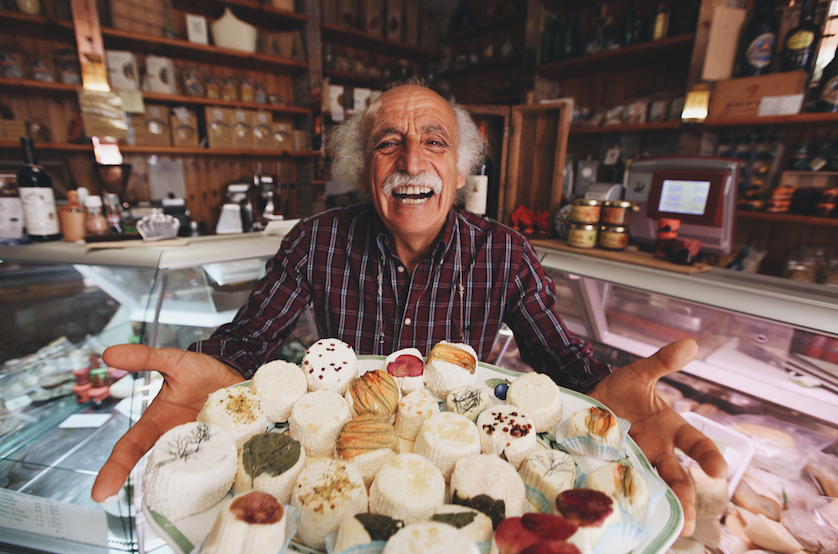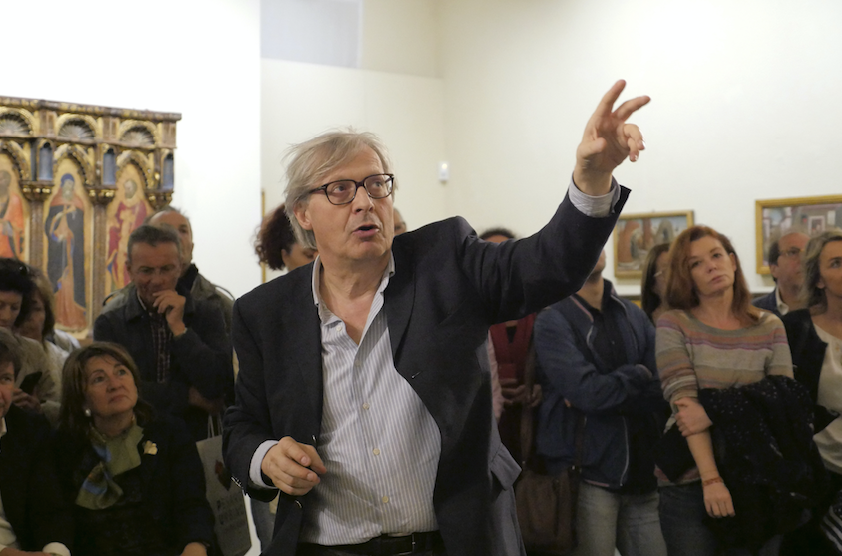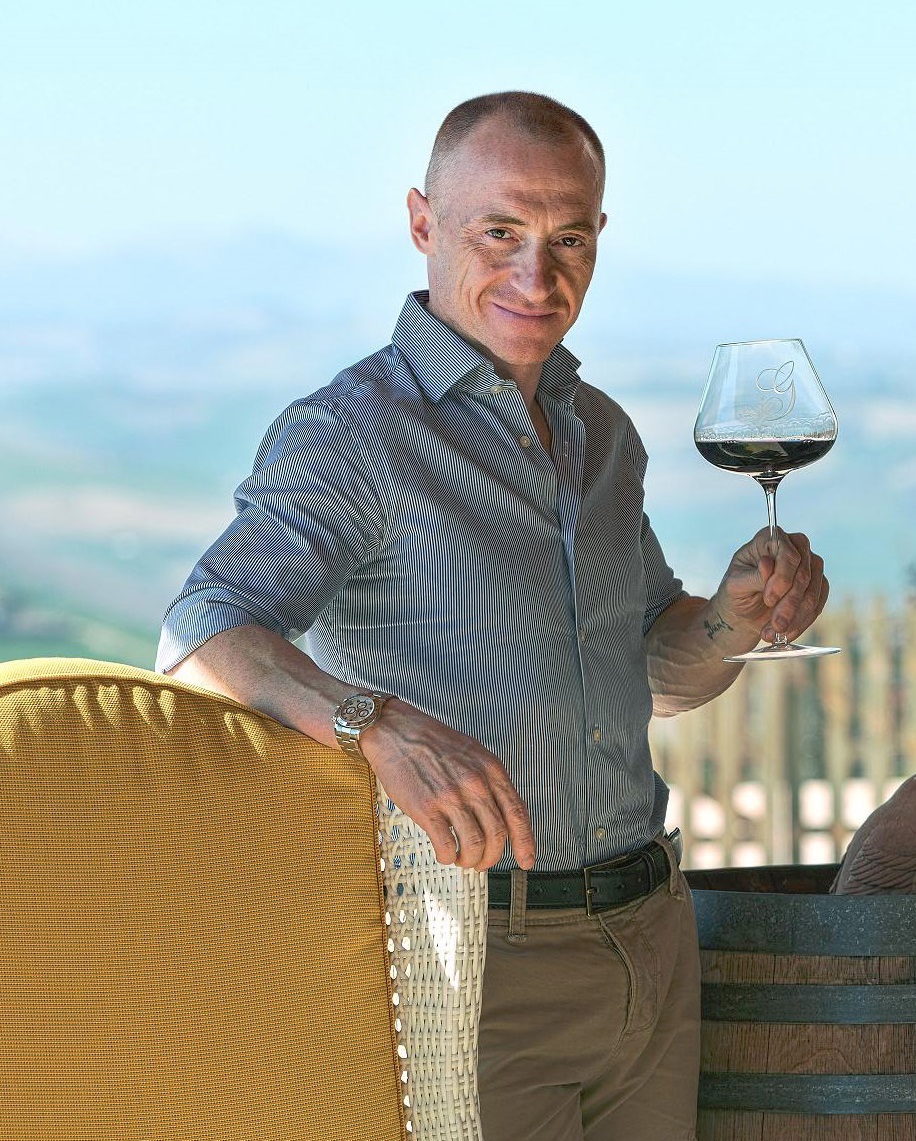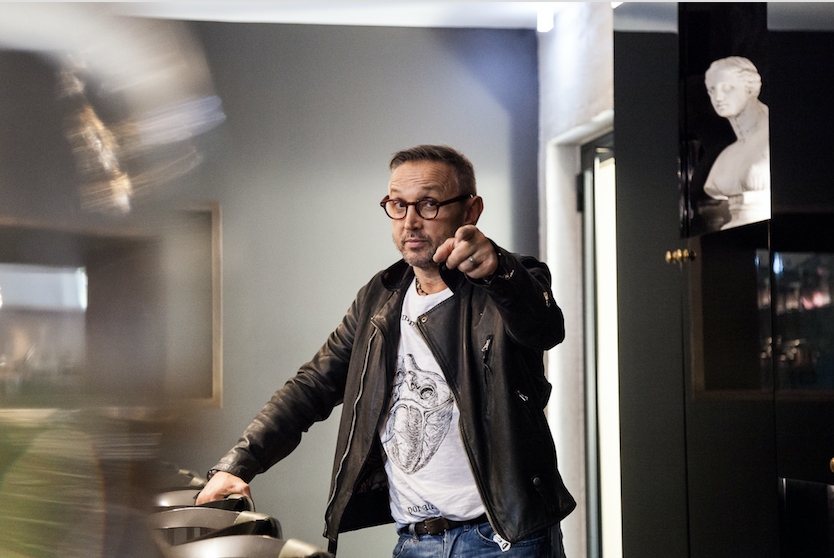The value of memory

A close encounter with Vittorio Beltrami, “the Einstein of cheese”
Vittorio Beltrami is a farmer deserving a capital “F”, one of the few left who can boast this title. Because Beltrami believes that being a farmer is a credit and an art, it is the skills it demands.
A thick white moustache and serious, attentive and curious eyes, Beltrami receives us in his delicatessen shop in Cartoceto. The intense smell of goat and sheep cheese on the shelves inebriates our senses, as do the colourful glass cans filled with marmalade and jam, skillfully made from spontaneous fruits and berries by Elide, Vittorio’s wife.
The shop is filled with a pleasant, hospitable, homelike vintage atmosphere. One breaths the smell of tradition. On the walls stand out the postcards and the greetings cards which over the years many customers sent to the Beltrami family to thank them for their hospitality. Two firms refer to this family, which grows olive trees and produces oil since 1870: the Della Rocca Olive Press, in the province of Pesaro hinterland, and the farm named “Il Covo dei Briganti” (“The den of thieves”) in Cartoceto. All their products are the fruit of love for their land, from DOP (Protected Origin Denomination) extra-virgin olive oil to marmalades and cheese, renown and appreciated both in Italy and in the main European capitals, and beyond: in the USA, Lidia Bastianich calls Beltrami “The Einstein of cheese”.
What is the meaning of being a farmer these days?
A word, more than any other, perfectly frames the effort since many years Vittorio Beltrami and his family carry on with dedication, care and love and that word is “retroinnovazione” (“retro-innovation”). A neologism created by Beltrami himself, who explains it this way: “It is the ability of moving forward while keeping constantly in mind one’s origin and remembering what was there before, one’s history and roots”. Which explains the importance of memory, A point Beltrami stresses heartily.
A shrewd observer and examiner of people he meets, Vittorio Beltrami starts talking passionately about farming and highlights that, more than a job, to those who consecrate to it every moment of the day it is rather the choice of a way of life. Indeed, there is a significant difference between those who live and taste the farmland, making it their own, and those who, instead, consider it just an instrument, nothing but a way to make money.
Who really is a farmer? How does he work? How does he live?
“By now the word ‘farmer’ has got a negative meaning, to the advantage of the more modern ‘agricultural businessman’ definition, but they are quite different jobs” explains Beltrami. “A farmer is a man who must reinvent himself every day in his farm, whereas a businessman is just a businessman. One might object that a farmer then, behaves irrationally: where does he get his profit from? Well, first of all he doesn’t spend much to feed himself, since he produces all he needs: fruits, vegetables, meat. What exceeds his needs is sold, and profits are reinvested in the farm. A farmer would never practice monoculture: he exploits his fields according to their characteristics. He respects the seasons, knows where a new orchard or a new olive-tree grove can be planted. A farmer works with his own hands: he prunes, grafts, milks, tans leather. He is a man who feels the flow of time, is animated by love for the earth he steps on, and even tastes it to evaluate its quality according to the concentration of mineral salt it contains. A businessman would never do such things.
A farmer has got passion, love, insightfulness. He lives out of traditions, histories and moments. Nowadays, in the farming industry, everything turns around chemistry. Last summer, for example, was very hot and temperatures often exceeded 35° centigrade. A farmer knows that, in such climatic situations, flies die; therefore he shall neither have to wet the stables with insecticides to stop those insects from tormenting his livestock, nor treat his olive trees: insects which usually infest farmland in the summertime were not there. A farmer respects the seasons whereas a manager doesn’t, because he has got to stand by a protocol, he’s got to sell a product, he’s bound to financial calculations.”
“Few farmers are left” declares Beltrami “who are capable of grafting trees, who don’t stuff their beasts with hormones, know how to help a kid or a calf to be born and their mothers to give berth, and is even capable of medicating them, if need be. These farmers should be defended by collecting their memories and writing books about them.”
In conclusion, you defend the value of memory, of the transmission of skills and of good practices. But how can they be transmitted to the new generations?
They certainly study on books and work hard to learn but lack, maybe, a direct knowledge of farm life, stables, kitchen gardens and working in open air, no matter the weather.
“In olden days children were aware. They assisted to the birth of animals in the stables and were thus educated by the family to a farming life. This doesn’t happen anymore. We’ve got, then, to offer motivation to young people. Which way? I can’t tell, but I can offer some reflections. I believe that families should start transmitting values again. Nowadays we are always far from home, parents can hardly communicate with their children. Very few families have meals together. Many ancient crafts have disappeared. In old times a farmer was also a butcher; women, fundamental members of peasant families, could knit, embroider with a crochet and even make mattresses. All of this knowledge was transmitted through visual memory only: one watched those at work and memorized the procedure, there was no writing and no reading. Traditions, crafts and professions have been lost, and nobody cared about their survival. I therefore believe” concludes Beltrami, “that saving manual skills, a fundamental resources of the whole Italy, is the same as saving knowledge, our story”.
I. Cofanelli




